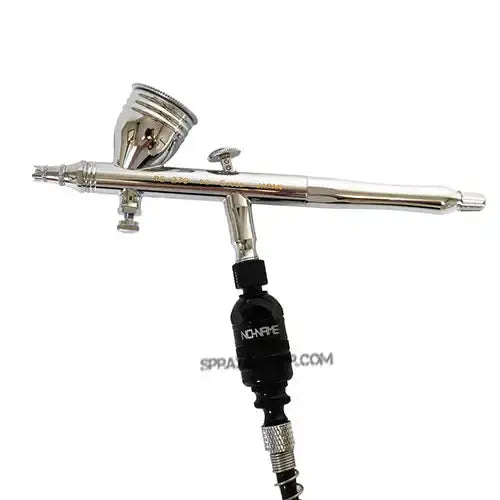Exploring the Parts of an Airbrush: Complete Guide for Beginners
The airbrush is an essential tool for artists, makeup artists, and modeling enthusiasts. Although it may seem complex at first, understanding its parts and functions allows you to unlock its full creative potential. Below is a detailed guide to the main components of an airbrush and how each one contributes to precision, control, and artistic expression.
Every airbrush is composed of multiple components that work together to control airflow, paint delivery, and atomization. Mastering how these parts interact is the foundation for achieving clean lines, smooth gradients, and consistent results.
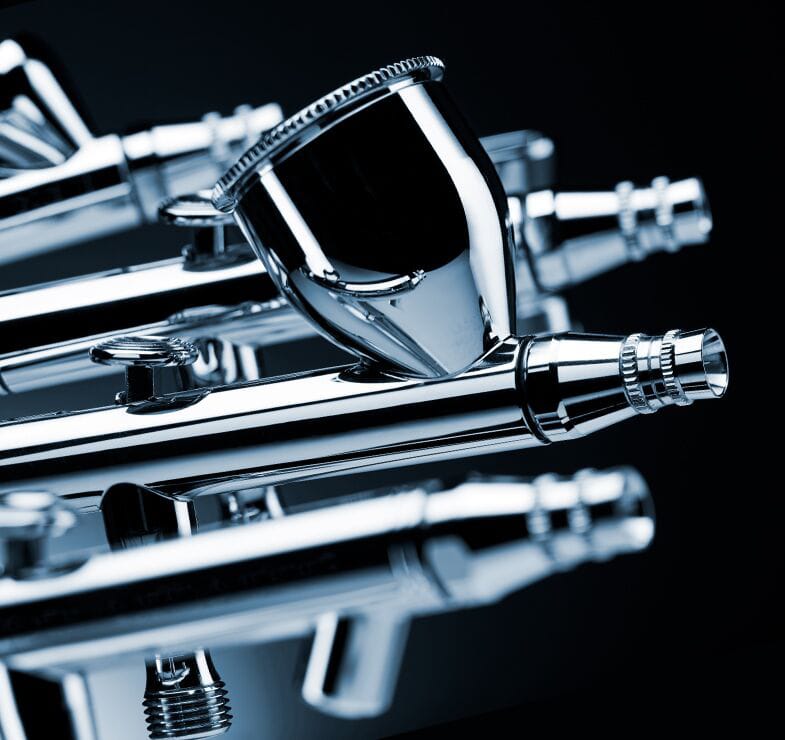
The needle cover protects one of the most delicate components of the airbrush. With the cover on, the spray becomes wider and fan-shaped, ideal for broader applications and safer handling.
Experienced artists often remove it to achieve finer, sharper lines when working at close distances.
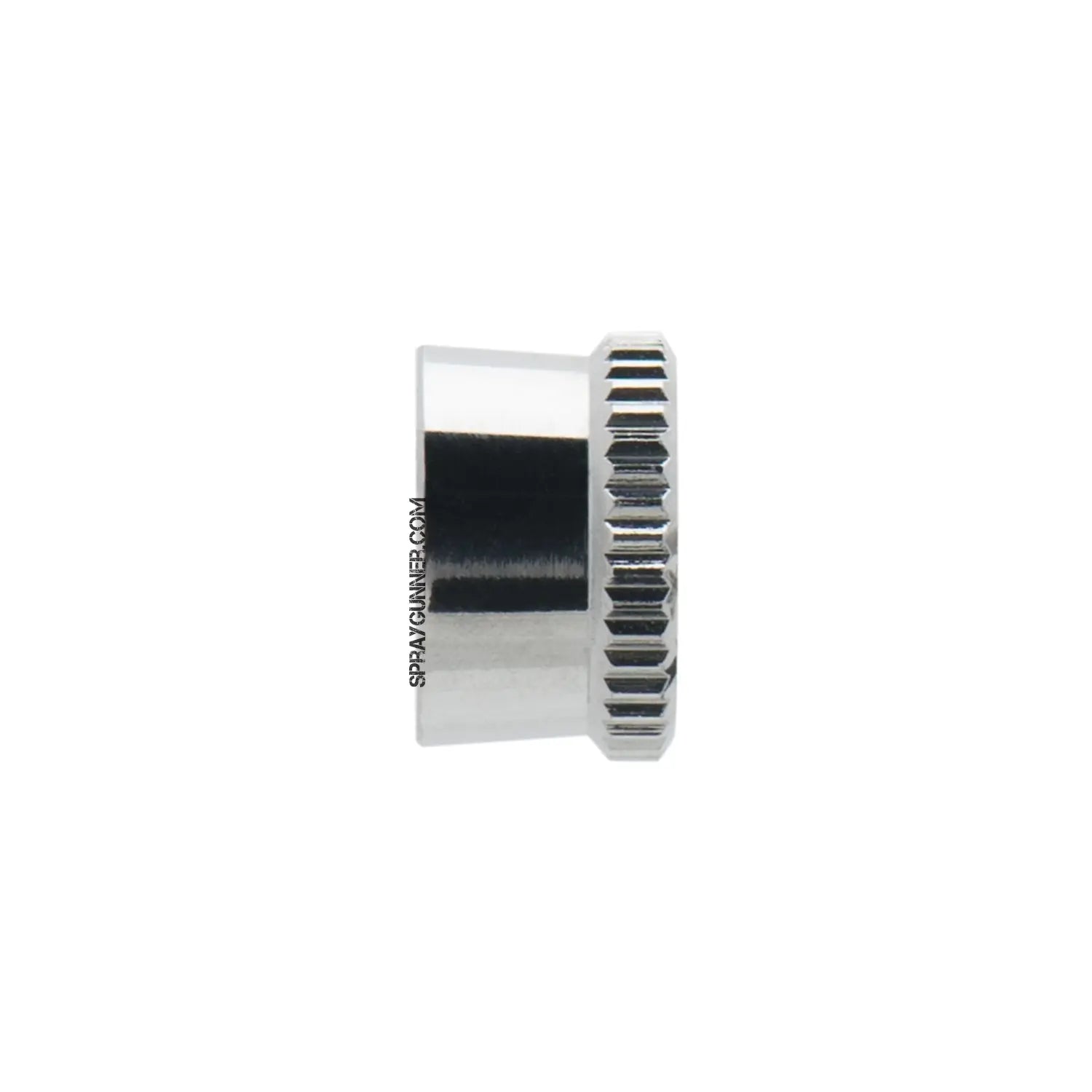
The nozzle is the small opening where paint mixed with air is expelled. Its size and shape determine spray quality and consistency. Keeping it clean is vital to avoid blockages and ensure constant flow.
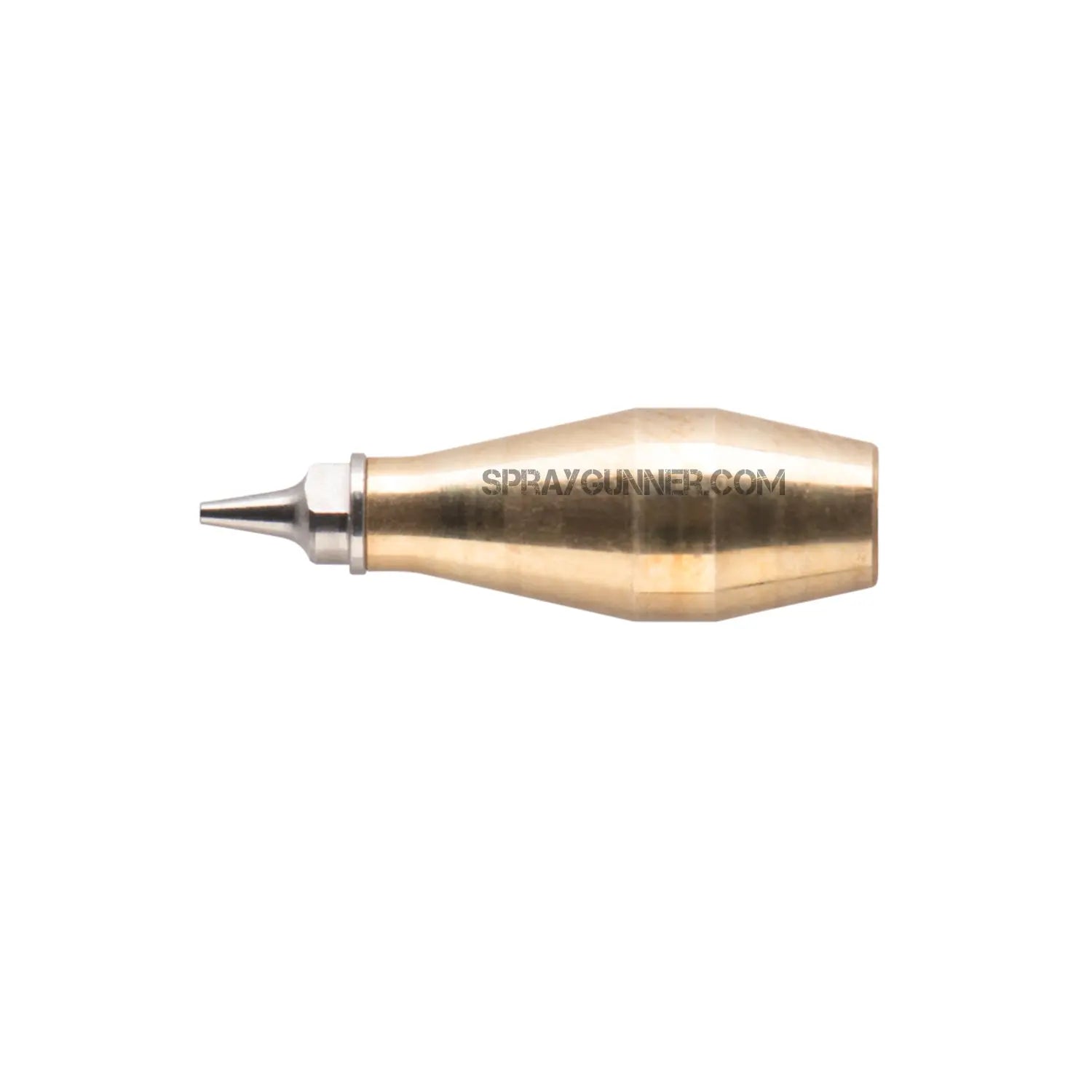
The trigger releases air and paint. Dual-action systems allow independent control, offering superior precision—especially useful in advanced painting and makeup techniques.
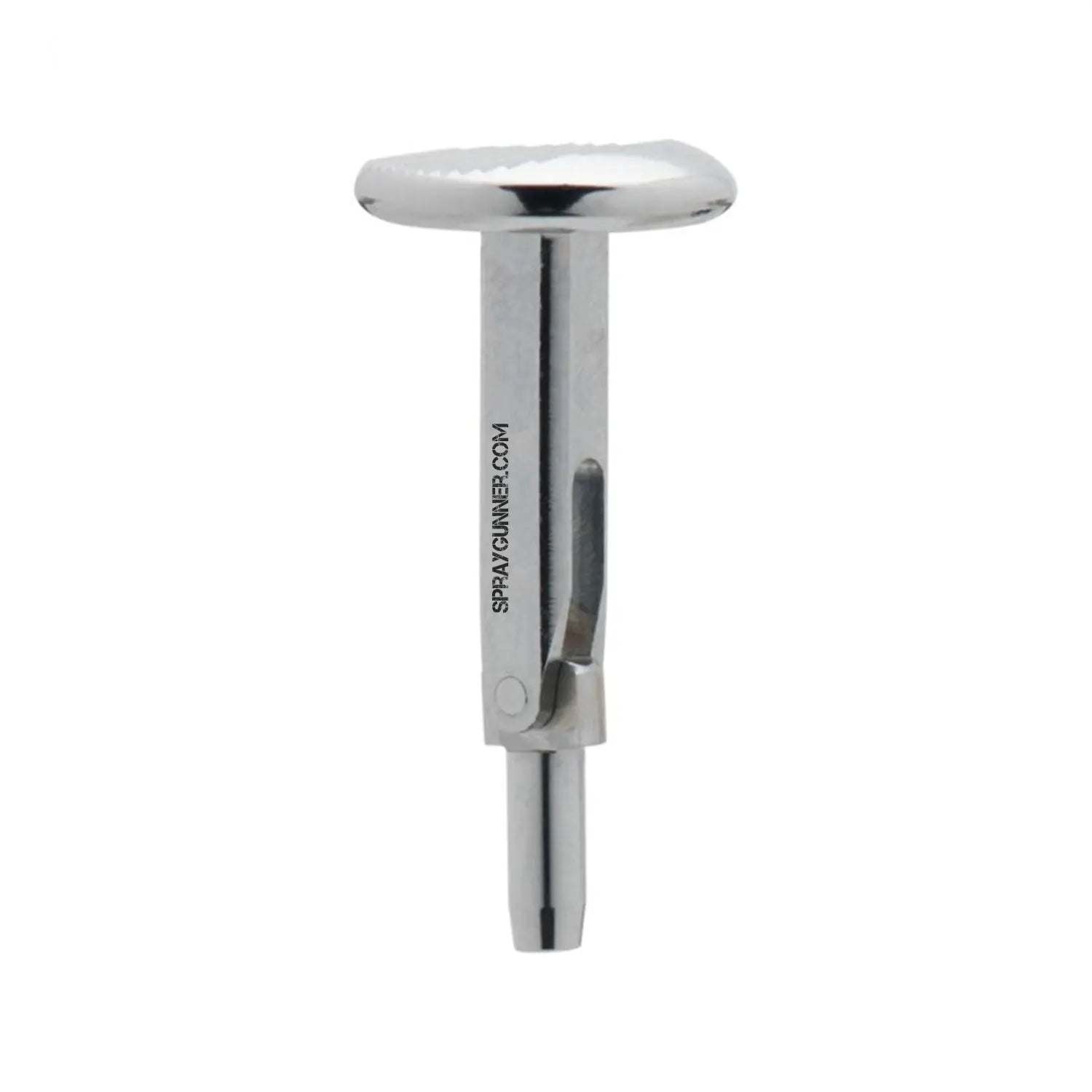
Lubricant ensures smooth, frictionless trigger movement, improving control and extending the lifespan of the airbrush by preventing wear and jams.

The body houses internal components and is designed for long sessions without fatigue. Ergonomic features improve grip, balance, and overall control.
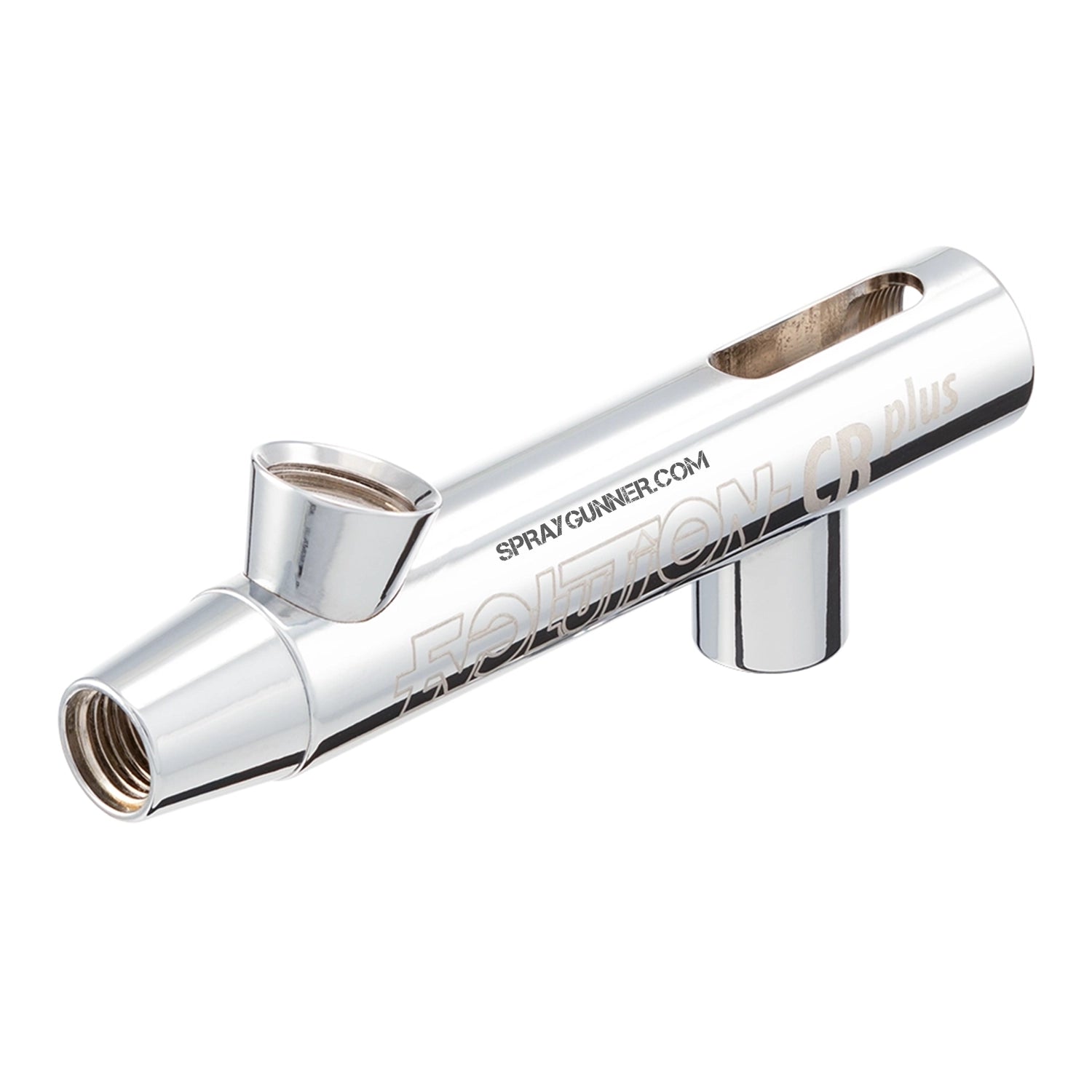
The needle controls paint release. Thinner needles allow extreme detail, while thicker ones enable efficient coverage of larger areas.

Adjusting the spring guide tension modifies trigger softness, allowing experienced artists to customize control to their technique.
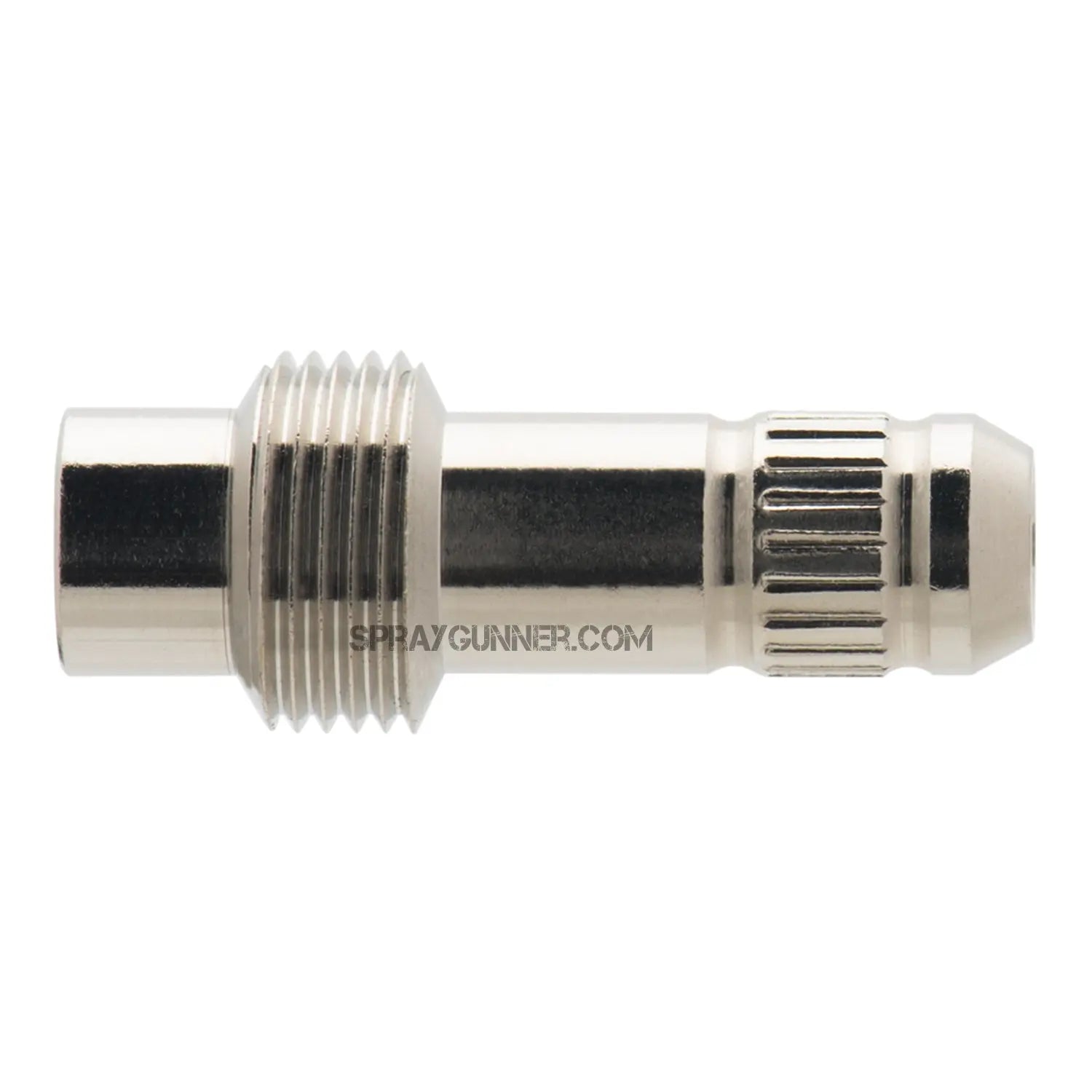
The fluid cup holds the paint. Larger cups suit long sessions, while smaller ones are ideal for precision work. Choose based on project needs.
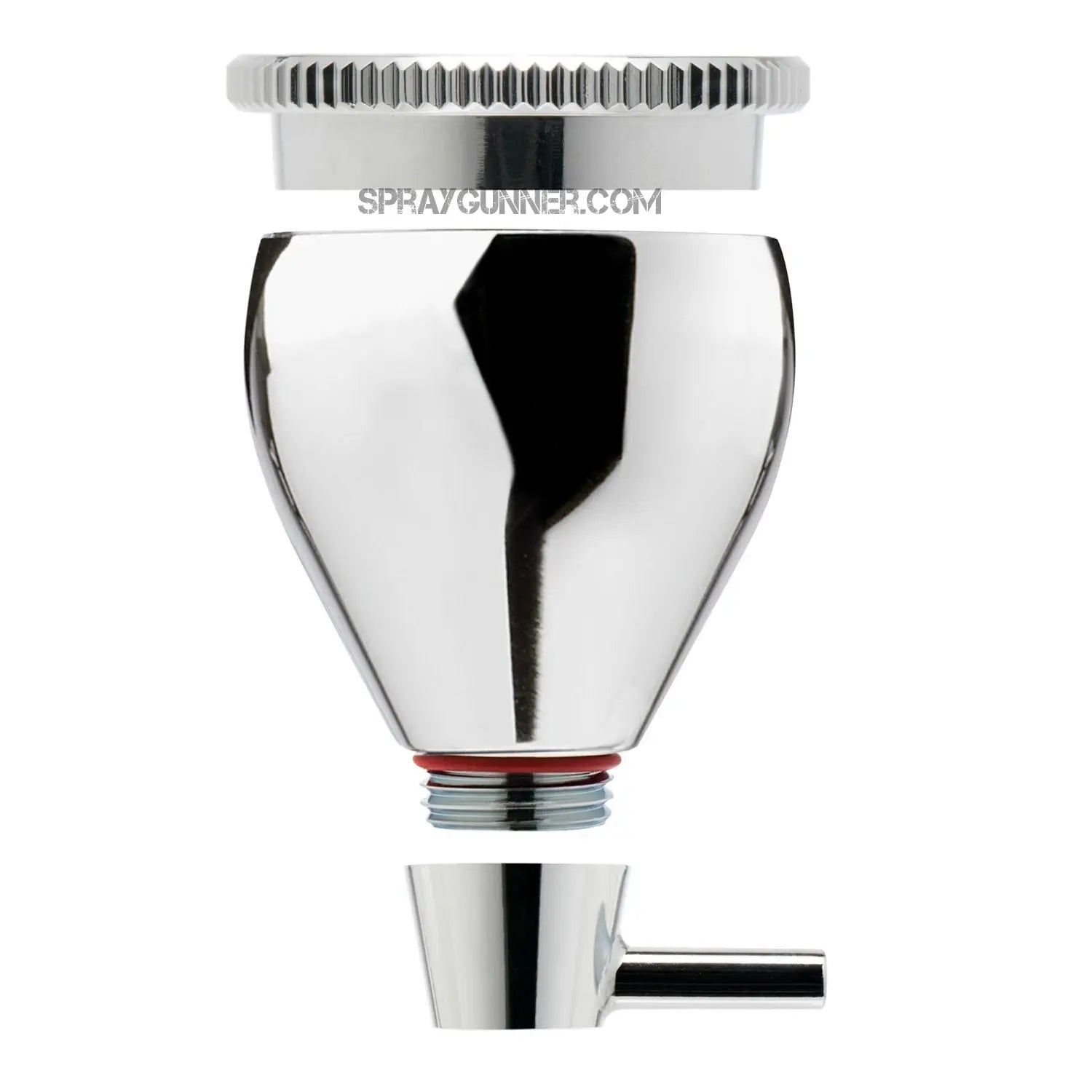
Pressure regulators allow precise airflow adjustment, enabling effects from soft gradients to sharp lines depending on project requirements.
Shop Regulator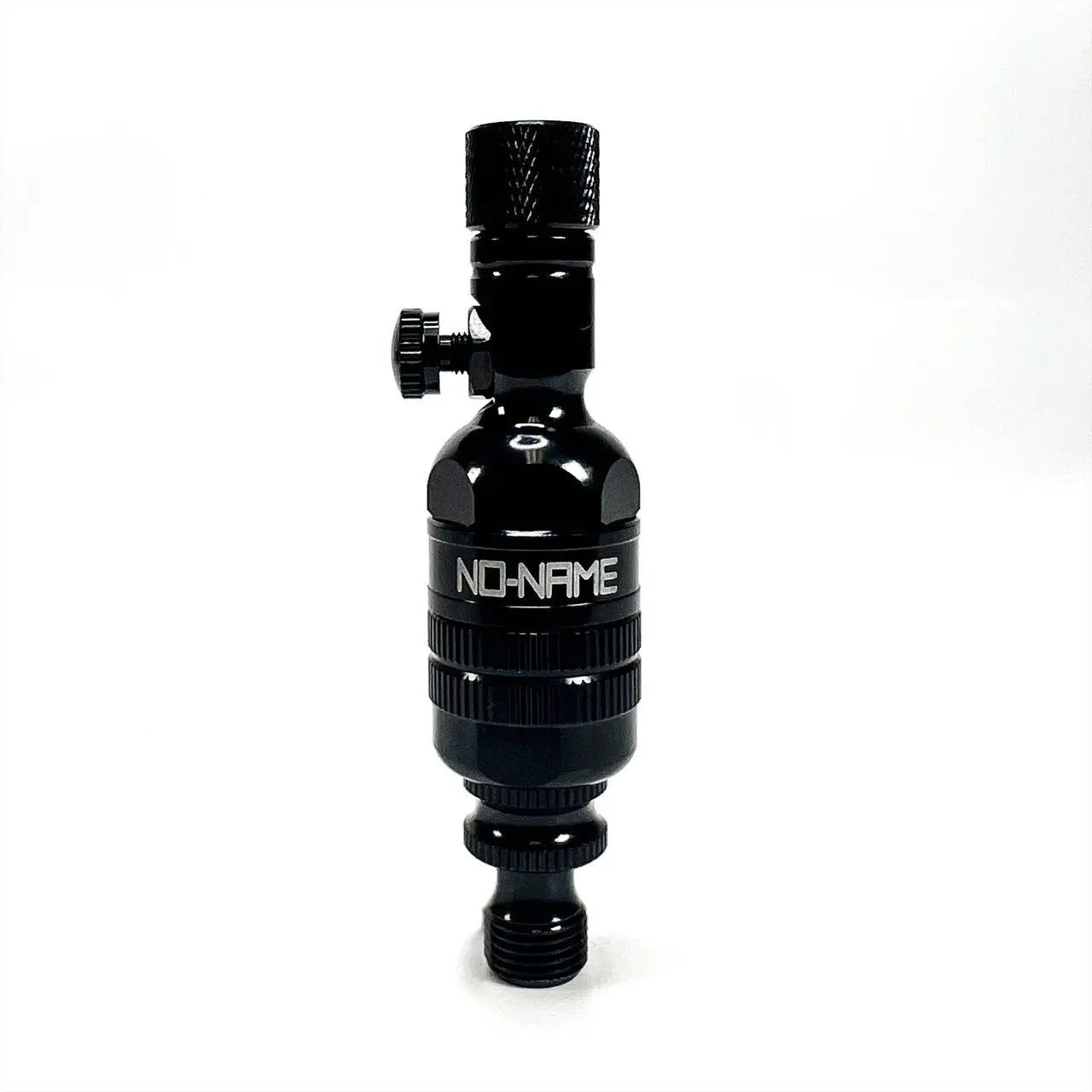
This component prevents paint from leaking toward the rear of the airbrush. Regular adjustment ensures optimal sealing and reliable performance.
Shop Tool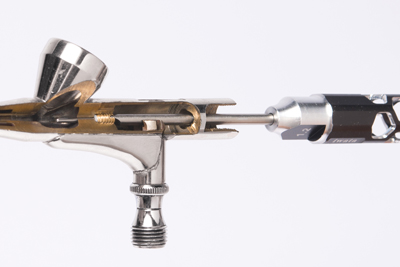
Air filters trap moisture generated by compressor heat, ensuring clean, dry airflow. This protection guarantees professional finishes without unwanted surprises.
